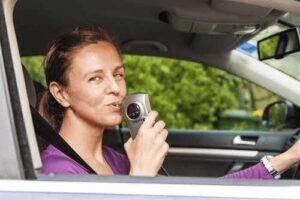In the state of Maryland, including Annapolis, law enforcement officers employ various tools and procedures to ensure road safety, one of which is the Breathalyzer test. However, as a driver, it’s crucial to be aware of your rights and understand whether you can refuse a Breathalyzer test in Annapolis, Maryland. Alpert Schreyer, LLC is here to provide valuable insights into this matter, shedding light on the legal implications and requirements associated with refusing a Breathalyzer test in the state.
The Importance of Breathalyzer Tests
Breathalyzer tests are commonly used by law enforcement to measure a driver’s blood alcohol content (BAC). These tests play a vital role in maintaining road safety by identifying individuals who may be operating a vehicle under the influence of alcohol. Maryland, like many other states, has implemented strict laws and penalties to deter drunk driving and ensure the well-being of all road users.
Implied Consent Law in Maryland
Maryland operates under an implied consent law, which means that by obtaining a driver’s license and operating a vehicle in the state, individuals implicitly agree to submit to chemical testing if arrested for driving under the influence (DUI) or driving while impaired (DWI). This includes breath, blood, or urine tests to determine the presence of alcohol or controlled substances.
Refusing a Breathalyzer Test
While Maryland’s implied consent law suggests a mandatory submission to chemical testing, drivers technically have the right to refuse a Breathalyzer test. However, this choice comes with legal consequences.
When a driver refuses a Breathalyzer test in Maryland, the Motor Vehicle Administration (MVA) imposes administrative penalties, including the suspension of the driver’s license. The duration of the suspension varies based on prior refusals and DUI/DWI convictions. It is important to note that the administrative penalties are separate from any criminal charges that may result from driving under the influence.
Legal Consequences of Refusal
Refusing a Breathalyzer test triggers an administrative process that can lead to the suspension of your driver’s license. For a first-time refusal, the MVA may suspend your license for 270 days. Subsequent refusals within a 5-year period can result in longer suspension periods, with a minimum of 2 years for a second refusal and 3 years for a third refusal.
Additionally, the act of refusing a Breathalyzer test may be used against you in court if you are later charged with DUI or DWI. While the prosecution cannot directly use the refusal as evidence of guilt, they may argue that the refusal suggests consciousness of guilt or an attempt to conceal impairment.
Challenging a License Suspension
If you have refused a Breathalyzer test and are facing a license suspension, it is crucial to understand your rights and explore possible avenues for challenging the suspension. Seeking legal representation from experienced DUI attorneys, such as Alpert Schreyer, LLC, can make a significant difference in navigating the complexities of the legal system.
The attorneys at Alpert Schreyer, LLC have a deep understanding of Maryland’s DUI laws and can assess the specific details of your case to determine the best course of action. They may challenge the legality of the traffic stop, question the validity of the arrest, or explore other potential defenses to help minimize the impact of a license suspension.
Understanding the Long-Term Impact
Beyond the immediate legal consequences of refusing a Breathalyzer test, it’s essential to recognize the potential long-term impact on your driving record, insurance premiums, and overall reputation. A license suspension resulting from a refusal can disrupt your daily life, affecting your ability to commute to work, school, or other essential activities.
Insurance companies often view DUI-related incidents, including refusals, as high-risk behavior. Consequently, your auto insurance premiums may skyrocket, making it more challenging to maintain affordable coverage. Some insurance providers may even choose to drop coverage altogether, leaving you to navigate the complicated landscape of finding new insurance with a tarnished record.
Moreover, the social stigma associated with a DUI-related incident can have lasting repercussions on your personal and professional life. Potential employers and educational institutions may conduct background checks, and a DUI conviction or license suspension could negatively impact your opportunities.
In conclusion, while drivers technically have the right to refuse a Breathalyzer test in Annapolis, Maryland, doing so comes with legal consequences, including the suspension of your driver’s license. Understanding the implied consent law and the potential penalties for refusal is essential for making informed decisions when faced with a DUI or DWI arrest.
If you find yourself in such a situation, it is highly recommended to consult with the experienced DUI attorneys at Alpert Schreyer, LLC. They can provide personalized legal advice, guide you through the legal process, and work diligently to protect your rights. Don’t navigate the complexities of DUI law alone – trust the experience of Alpert Schreyer, LLC to advocate for your best interests.
Contact Alpert Schreyer, LLC today to schedule a consultation and take the first step in building a strong defense against DUI charges. Your future and driving privileges are too important to leave to chance.
